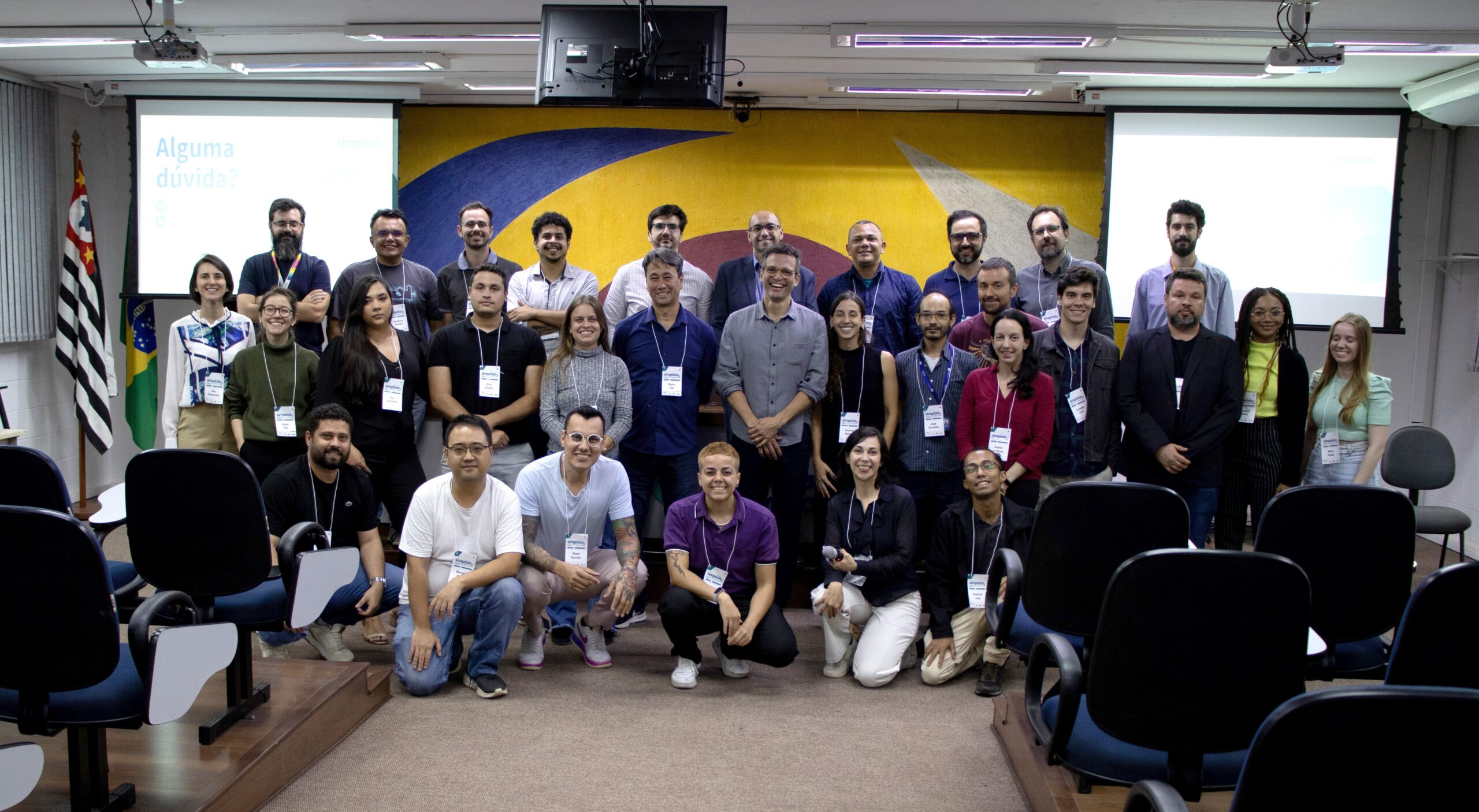CINE holds event to train energy transition entrepreneurs

A symposium dedicated entirely to technological entrepreneurship was held by CINE in partnership with Escalab, a center dedicated to taking technologies from the laboratory to the market. The objective of the event was to motivate and train CINE members so that, based on their scientific research, they can create innovative solutions that meet market demands.
Held in the FEQ-Unicamp auditorium on the morning and afternoon of May 13, and broadcast live on YouTube, the “Symposium on Generation and Acceleration of Startups for the Energy Transition” was attended by an audience of approximately 60 people, made up of undergraduate, master’s and doctoral students, as well as researchers at various stages of their scientific careers. The event was funded by Fapesp and Shell Brasil, founding sponsors of CINE.
“In academia, we sometimes think that the technology we develop is ready for the market, but in reality it is a huge challenge to transform the prototype into a product,” says Professor Hudson Zanin (Unicamp), a CINE researcher who coordinated the organization of the event. “In this symposium, we were able to plant seeds that could become businesses in the future by planning the best path between the prototype and the product,” comments the scientist.
The event brought together six external speakers who shared their knowledge about the transformation of academic research into products in Brazil. In addition, at the end of the symposium, there were presentations by three startups that are part of CINE: Cath Energy, which aims to produce battery materials from Brazilian minerals; BREnergies, which is building a pilot plant for the national production of lithium batteries; and Seriema, which proposes a charging station for electrified vehicles that helps stabilize the electrical grid. In their pitches, members of the startups showed, in a few minutes, the problem that motivated their creation, the proposed solution and the initial investments required.
“I left the event feeling more confident, motivated and eager to continue building and learning as a group,” says Isabelly Victória de Souza, a Unicamp student who conducts research at CINE and participates in the startup BREnergies. “As an undergraduate student, I felt welcomed and excited to have the opportunity to exchange ideas with people with inspiring backgrounds,” she says.
Speeches by experts and entrepreneurs
After the opening, given by Professor Hudson and CINE Director Ana Flavia Nogueira, Professor Rochel Lago (UFMG) introduced Escalab, a center for technology scaling and business modeling located in Belo Horizonte, of which Lago is a co-creator. In addition to being a prolific researcher in the field of Chemistry (author of more than 200 scientific articles and more than 30 patents), the professor has been dedicating himself to technological entrepreneurship, having given more than 120 lectures on the subject. In a second speech, near the end of the event, Rochel presented examples of scalable technologies and startups being accelerated in Escalab’s venture builder.
In the second lecture of the program, the audience was able to understand Unicamp’s innovation ecosystem, which was presented by Mariana Zanatta, coordinator of Innovation and Entrepreneurship Environments at Inova, the Unicamp’s innovation agency. In the third presentation, entrepreneur Viviane Hamanaka told the story of Autocoat, from its creation as a startup at Unicamp to its operations in the international instrumentation market. Viviane, who has a PhD in Electrical Engineering from USP, is the founder and CEO of Autocoat.
After the presentation of the case, the event program included two more lectures by the Escalab team. Innovation ecosystems in Brazil and around the world were the subject of the speech by Maria Duarte, co-founder and general director of Escalab. The young chemist, who has already participated in two technology-based ventures, presented examples of paths to follow for licensing technologies, providing services and creating startups. In turn, Eduarda Rezende, who works in project management and open innovation programs at Escalab, presented innovation concepts and explained how to assess whether an idea can become a business.
Finally, Alexandre Bueno (UFSCar), who holds a master’s and doctorate in Technology and Innovation Management, gave a presentation on the Embrapii unit that operates at UFSCar and the sources of funding that can be used in innovation projects that are developed there in partnership with industry. Embrapii is an organization connected to the government, dedicated to support the Brazilian industry to achieve technological innoavtion. Bueno also presented several success stories from Embrapii-UFSCar.
“The information, concepts and examples presented by the speakers helped me better understand how research can be transformed into real solutions, in addition to providing a more concrete view of the market and where the technology of our startup fits in,” comments Isabelly. “In addition, it was an important moment to reflect on the possible paths within and outside academia, and on how teamwork makes all the difference in this process,” she adds.
For Bruno Bitarães, a member of CINE who actively participated in organizing the symposium, the event inspired researchers to pursue new career paths. “We showed how it is possible to format research to meet society’s needs and thereby generate value,” he says. In addition to developing academic work as a postdoctoral fellow at Unicamp, Bruno is a member of the startup Cath Energies, which aims to produce battery materials from Brazilian minerals.
The symposium was the second event for training entrepreneurs promoted by CINE. The first took place in August 2022 and was held in partnership with Inova Unicamp.
Access the recording of the symposium on FEQ-Unicamp’s YouTube channel.
Contact

Hudson Zanin
UNICAMP

